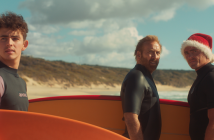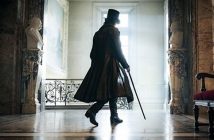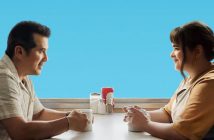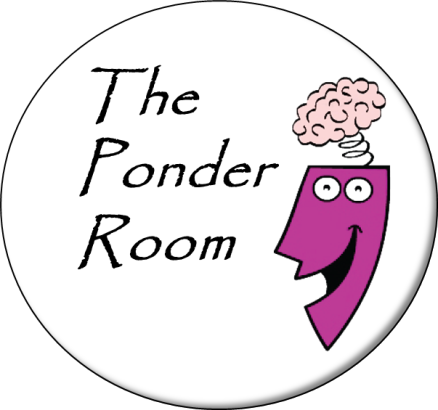Writers Festivals are all about inspiration, motivation, learning, friendship and new books, or at least they are for me, and the 2017 Perth Writers Festival continued this tradition.
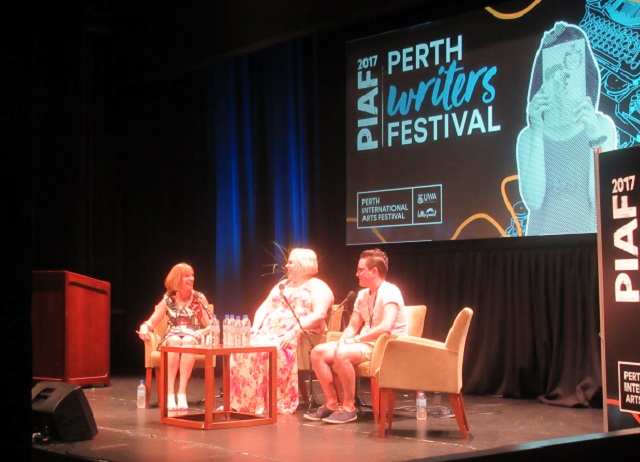
Lindy West © The Ponder Room 2017 Perth Writers Festival
To be honest when I first looked at the program I couldn’t find my space, but after a second look there it was lurking amongst the 100 writers, thinkers and activists’ names. With an 80,000 word crime/mystery manuscript hiding in my bottom draw I was thrilled to see the genre had made it into the program, and not just a token nod in between the multiple refugee and political offerings.
Held over three days my weekend started with a workshop on crime writing by Candice Fox.
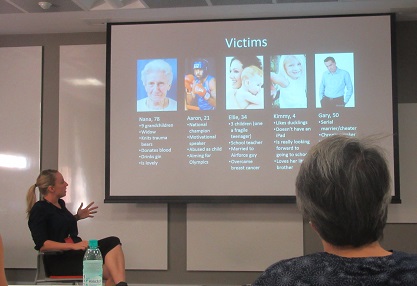
Candice Fox © The Ponder Room 2017 Perth Writers Festival
Candice has many literary accomplishments to her name not least of which, a killer hairdo that gave her the courage to tap James Patterson on the shoulder at a writer’s function. A tap that resulted in her collaborating with Patterson on several books. I was fortunate to attend one of Candice’s workshops years ago in Byron Bay, her courses are informative, entertaining and inspiring. Over three hours we explored the need to make readers care about the suspect and investigator as well as the victim. We delved into crime statistics, the lifecycle of flies, motives, plot (start on a high note) and publishing.
The subsequent panel discussion with new crime writer voices, Holly Throsby and Jane Harper, outlined the benefits of setting your novel in a small town. The claustrophobic atmosphere and opportunities for chance encounters enhances plot possibilities. When asked about motivation Throsby suggested that ‘first time writers get to write the book they want to read’ and both ladies conceded that being pregnant provided the perfect nine month enforced deadline.
Leaving the crime world behind I listened to Barbara Arrowsmith-Young talk about growing up with severe learning difficulties, and ‘living in a fog’ with a ‘fragmented sense of self’.
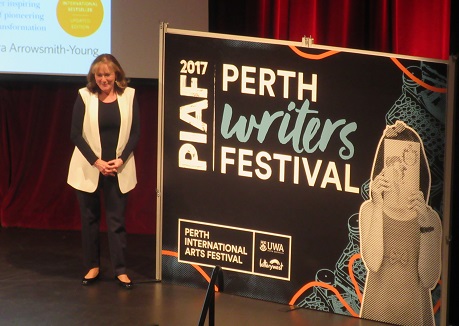
Barbara Arrowsmith-Young © The Ponder Room 2017 Perth Writers Festival
Her father told her it was her ‘responsibility to go out and solve the problem’ which she did by developing a series of exercises that are now taught around the world. Even more impressive though, she has gone from learning difficulties to assembling IKEA furniture. While I found her talk interesting and inspiring several people around me were disappointed to have paid for what they felt was a gratuitous sales pitch. This perception was further cemented when the first audience question pleaded for an example of one of the exercises. These perceptions serve as a reminder of the fine line between sound self-promotion and negative word of mouth.
As the sun went down I headed to the State Theatre for a new event called Courtyard Sessions. For only $10 I settled in to watch the Literary Death Match, the first time this event has been held in Australia. As the judges lambasted each writers’ performance, the injection of humour was the perfect bookend to a day of crime and mental health.
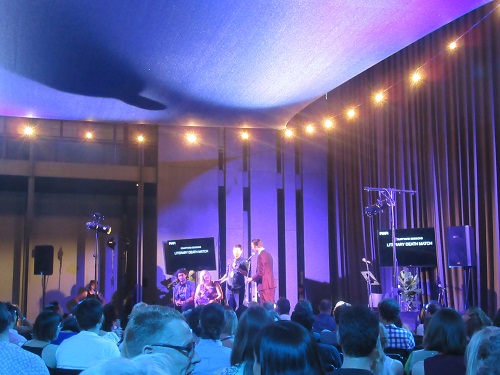
© The Ponder Room 2017 Perth Writers Festival
Day two began with Nick Earls discussion about short form novellas, 20,000 words that can be read in two hours. It was an insightful discussion about how literary value should not be measured in size. Earls concluded ‘we don’t buy books by the kilo’.
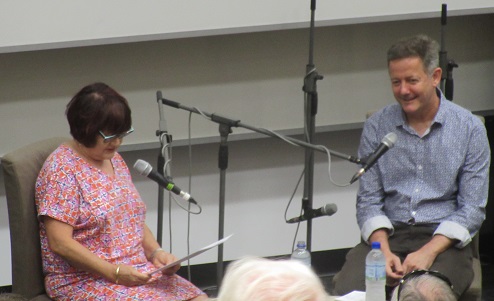
Nick Earls © The Ponder Room 2017 Perth Writers Festival
Hashtag Headlines provided a fascinating and timely insight into how politicians are turning into publishers through their use of Twitter. Journalist Mark Di Stefano (top photo) provided an example of how the news cycle has shortened from one day to nine minutes. Lindy West (top photo) lamented that while Twitter enabled her to access a broader perspective of opinions, sadly by expressing her own she was privy to a darker side of society, death and rape threats. Both professed the need for greater checks and balances on social media.
David Whish-Wilson, Jane Harper and Candice Fox teamed up to discuss the essential need for secrets in crime fiction. Whish-Wilson explaining that ‘if there’s no surprise for me then there’s no surprise for the reader.’
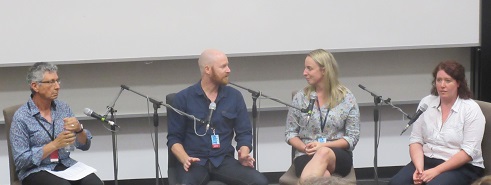
© The Ponder Room 2017 Perth Writers Festival
After all this focus on crime fiction, Dan Box’s session on Bowraville was a timely reminder about not glorifying crime. In real life, crime doesn’t entertain, it extinguishes hope. Twenty years ago three Aboriginal children, Evelyn Greenup, Clinton Speedy-Duroux and Colleen Walker went missing. They all lived on the same street. They all went missing within a five month period. Thanks to the enduring efforts of the families, laws have been changed and the police now have a suspect for two of the murders. Sadly, the whereabouts of the third child is still unknown. It was fascinating to hear Box explain the part that traditional media, social media and his podcast played in this crime. For example, when the families boarded a hire bus to the city to demonstrate, Box joined them and tweeted knowing his colleagues would be watching. As a result, when the bus arrived at the destination several camera crews were already in situ.
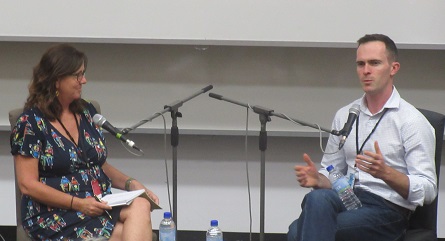
Dan Box © The Ponder Room 2017 Perth Writers Festival
Similarly, Patrick Cockburn and Madeleine O’Dea’s discussion about reporting from the frontline put the life of war correspondents into perspective. It was fascinating hearing Cockburn talk about checking his Wikipedia account, not out of ego, but to craft what his captors would find should he ever be held hostage.
‘The first thing the captors do is look at your Wiki page.’ Cockburn explained.
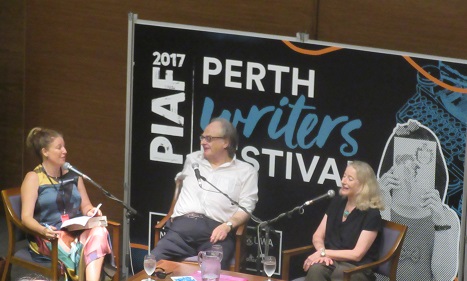
Patrick Cockburn, Madeleine O’Dea © The Ponder Room 2017 Perth Writers Festival
Unfortunately, I missed the talk by NSW Australian of the Year, Deng Adut, which I heard received a standing ovation at the Octagon Theatre, something I’ve not seen before.
On a lighter note, Sunday was Family Day which always brings some interesting sights like handmade Viking boats floating on the UWA pond, and megaphones spruiking children’s answers to important questions. One of the best initiatives of this year was having children curate the day. They picked the books and interviewed the authors. Brilliant.
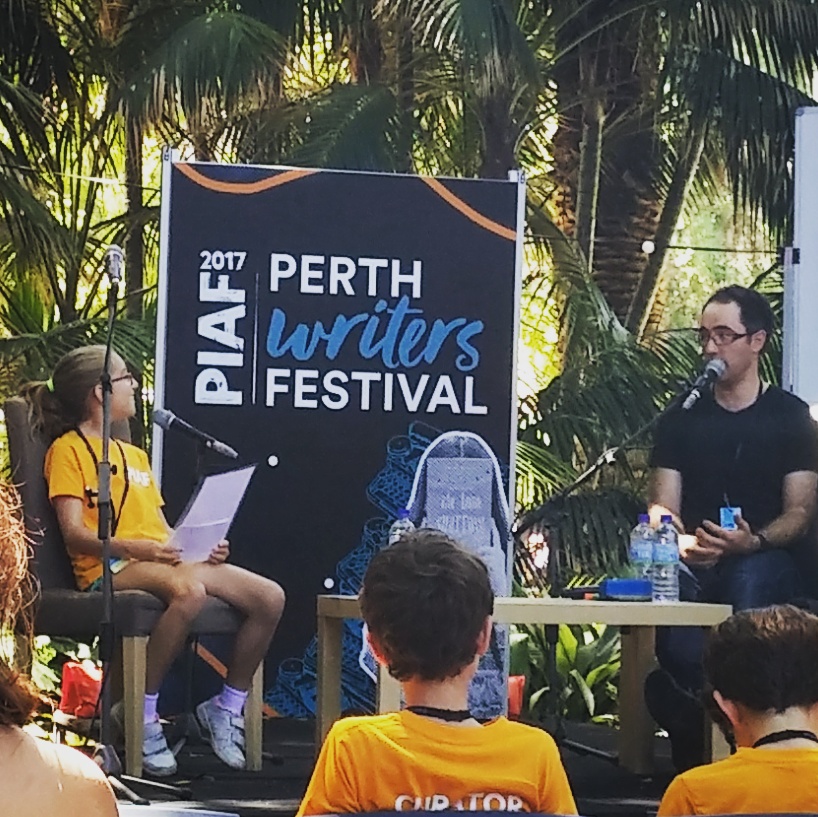
Looking back the 2017 Perth Writers Festival was yet another year of educational opportunities, creative ideas, inspiring stories, stunning settings, and chance encounters with hibernating author friends. The ongoing inclusion of so many free events sets this festival apart from others and opens the doors for more people to experience the behind the scenes life of a writer.
If I had to consider any improvements, some regulars I spoke to did not attend at all this year because they felt the program was limited to only a few genres e.g. refugees and politics. Others who attended several of these thoughtful sessions found the cumulative effect draining and decided to forgo other events even though they’d bought tickets. So perhaps there could be a greater diversity amongst the genres on offer, although naturally this depends on the books published during the year. Another reason for not attending this year was the desire to hear from more new voices rather than the usual suspects. I’d wager this is particularly important in isolated Perth. Lastly, I’m not sure whether the presentations get vetted, however as stated earlier, while people were happy to accept a sales pitch during a free event they were not so forgiving when they had paid.
Most of all though my lasting impression from this years festival was that while we have the luxury of writing and reading interesting stories, some people have the misfortune of living out the very lives that we choose to fictionalise. Something that should be kept in mind when writing and promoting our stories. Here’s hoping that by this time next year the third Bowraville child will have been found and all three families will have justice.
Another thought year of provoking inspiration at the Perth Writers Festival 2017
-
Value for money
-
Learning
-
Inspiration
-
Range of topics

